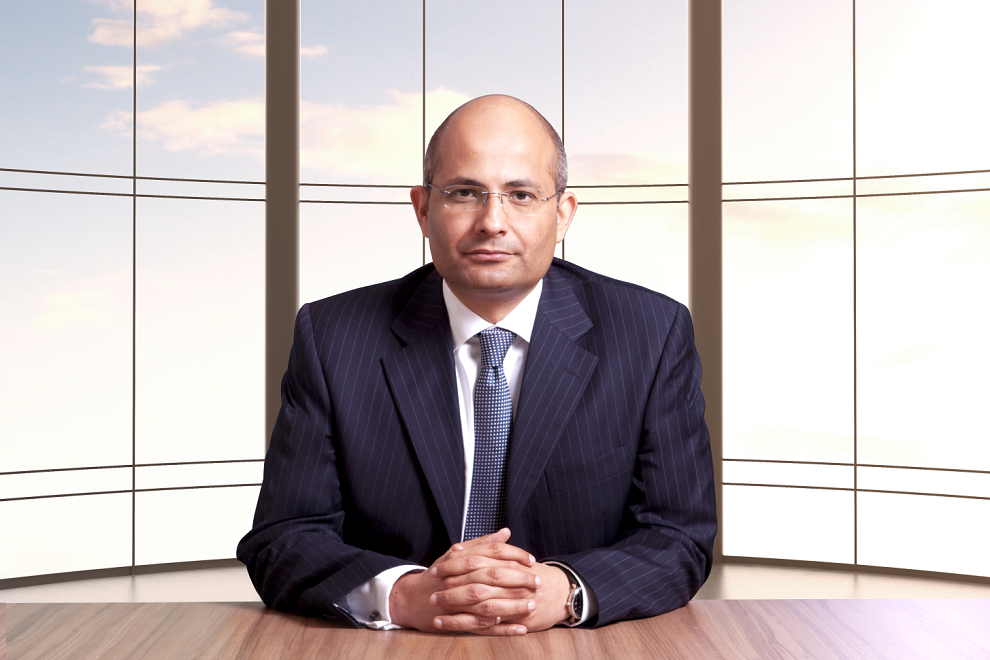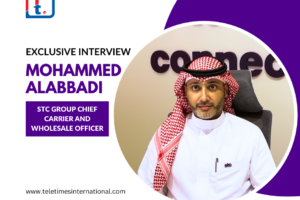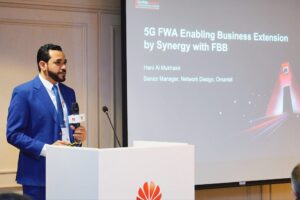Zarrar Hasham Khan, SEVP (Enterprise & Wholesale) & Chief Business Services Officer, PTCL Group talks about the role ICT can play in solving many of the countries critical problems during an interview with Teletimes International in MWC Barcelona
Gulraiz Khalid: Would you like to talk a little bit about MWC and how it has evolved over the past years?
Zarrar Hasham Khan: I have attended a lot of MWC events and the first one was probably in 2004. The conference has changed a lot over the years. In the past, it used to be smaller and held at a section of Fira. However, the growth and evolution of the Mobile World Congress (MWC) reflects the changes in technology, especially in mobile operations.
In the early days, the focus was on connectivity. When 3G arrived in 2007, the emphasis shifted to the internet, and with the introduction of 4G in 2011, apps became the main focus. The adoption of the iPhone in 2010-11 and the widespread use of 4G completely changed the direction of the mobile industry.
To successfully bring 5G to Pakistan, the government, mobile operators, and society in general must first define a problem that can only be solved by 5G, or that can be solved most effectively by 5G
The app providers became the ones creating more value, and customers started feeling more connected to applications than to service providers. With the arrival of 5G in 2018, the focus shifted again, and it was seen as a gateway to the Fourth Industrial Revolution and a societal shift. Now, we’re seeing the maturity of the 5G concept and the Fourth Industrial Revolution.
G.K: How far is your home market (Pakistan) from 5G adoption?
Z.H.K: The first element is understanding why we need 5G in Pakistan. It’s important to identify the problem that 5G can solve in Pakistan, rather than simply viewing 5G as a technology to be adopted. For example, having access to 100 Mbps or 1 Gbps may not be a practical solution in a country where affordability and mobile ARPU are low.
To successfully bring 5G to Pakistan, the government, mobile operators, and society in general must first define a problem that can only be solved by 5G, or that can be solved most effectively by 5G. Once we have identified the problem, we can start to work towards bringing 5G to Pakistan. However, it’s worth noting that mobile operators are currently facing economic challenges, so bringing in 5G may be difficult.
Agricultural productivity is low, and we need to use telecommunication technology, such as IoT, to increase productivity in this sector
In summary, to bring 5G to Pakistan, we need to identify a specific problem that can be solved by 5G and work towards solving it. This will ensure that 5G adoption in Pakistan is practical, effective, and sustainable.
G.K: Would you like to talk about some key issues in Pakistan which the existing ICT infrastructure can address?
Z.H.K: I would like to talk about PTCL and Ufone in particular since I am the Enterprise Chief for both. Pakistan is facing four to five critical problems that need to be addressed. Firstly, the country is in a challenging economic situation with a current account deficit and fiscal deficit. We need to leverage technology to find solutions to these problems.
Secondly, agricultural productivity is low, and we need to use telecommunication technology, such as IoT, to increase productivity in this sector.
Thirdly, education is another area that needs improvement. Pakistan has some of the lowest education and child learning indicators in the region. We need to use technology, such as e-learning and providing smartphones and tablets, to accelerate learning and improve education outcomes.
Fourthly, healthcare is a significant issue in Pakistan, with high rates of child and infant mortality, as well as low average lifespans. We need to use technology, such as telehealth, smart hospitals, and remote diagnostics, to address these problems.
As the PTCL group, we are individually focusing on solving these problems for Pakistani society, and leveraging technology to find practical and effective solutions.
G.K: Some of our readers would be interested in the role ICT can play towards the agriculture sector of Pakistan?
Z.H.K: There are multiple aspects that need to be addressed. The first one is related to Pakistan’s water scarcity issue. Currently, flood irrigation is being used instead of smart irrigation, which means there is a need to adopt technology that only irrigates when necessary and in the required amount. This doesn’t necessarily mean expensive drip irrigation technology, but rather sensors that can be placed in the soil to monitor the moisture level.
The second use case is related to the high cost of fertilizer. It is crucial to use the optimal amount and type of fertilizer at the right time. Therefore, sensor technology can be used to determine the exact time when fertilizer is needed.
We’re striving for inclusive connectivity, particularly in rural areas of Pakistan, which has one of the largest rural populations
Another area that requires attention is agricultural credit. Currently, farmers have to pay higher interest rates, and we need to make it more accessible to them. Also, almost 50% of perishable crops go to waste due to low agri-productivity, which can be improved through the use of technology like cold storage, smart logistics, and direct farm-to-market procurement.
G.K: What about the education sector? Is PTCL working directly on any initiatives in that regard?
Z.H.K: We’re taking on the role of a system integrator and working with our partners and the government to explore different opportunities. We know we can’t solve every problem at once, so we’re focusing on specific issues.
Regarding education, we’re striving for inclusive connectivity, particularly in rural areas of Pakistan, which has one of the largest rural populations. Huawei has been championing the education cause.
We’re taking two approaches to improve education. First, we’re collaborating closely with partners to turn universities into smart institutions. PTCL has already successfully executed some of the largest smart university projects in Pakistan. Second, we’re working extensively with the Ministry of Education on the E-learning side. We won the branded e-learning tender of the World Bank, which was awarded to PTCL. We’re executing app-based learning and will soon launch OTT-based education that provides needed education to those who cannot physically attend school. We also have our own learning management system. We’re working with our partners to reduce the complexity and cost of adopting technology in the education sector.
G.K: Finally, please tell us about the role of USF and how it sets an example for other markets?
Z.H.K: The USF (Universal Service Fund) has a crucial role in providing connectivity to areas where it’s not economically feasible for providers to do so, like FATA and areas in the Balochistan province. This connectivity has a positive impact on various sectors, including education, healthcare, and financial institutions. USF is subsidizing these providers to make this possible, and their work in this area is commendable. The role that USF provides enables many solutions and provides connectivity to remote communities increasing the standard of life on many fronts all across the country. For this, we are all in appreciation of them.








